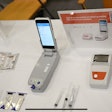
A federal investigation has confirmed a number of shortcomings in radiology patient scheduling at a U.S. Department of Veterans Affairs (VA) hospital in Phoenix that was at the heart of a scandal last year over long patient waiting times.
Investigators with the VA Office of Inspector General (OIG) found a number of violations in scheduling radiology department patients at the Phoenix VA Health Care System.
The inspection was sparked by a scandal that rocked the VA last year, following allegations reported to an OIG hotline and a U.S. House of Representatives Committee on Veterans' Affairs hearing on April 9. The allegations were detailed in an OIG report released on May 28.
In a February 26 update, OIG confirmed a number of allegations raised last year:
- A Microsoft Outlook software calendar was used to supplement radiology scheduling in the VA's VistA information system, a breach of VA security requirements.
- Radiology clerks had no access to the facility-wide scheduling system, causing radiology appointments not to be reflected on patients' appointment lists.
- Imaging files and records were not properly stored and were not easily retrievable.
- Clerical staff was insufficient, and some areas had no clerical coverage.
- The radiology department had no written scheduling guidelines and no formal training plan for radiology clerks.
OIG recommended that the interim facility director ensure that the radiology department uses software that is consistent with VA policy to schedule appointments.
The agency also recommended that department managers explore the use of the scheduling system by radiology clerks, develop and put in place a scheduling policy and a formal training program for clerks, and monitor clerical needs to ensure all radiology areas are staffed. Finally, the facility's plan for centralized radiology scheduling and procedures should be implemented to allow for prompt response to phone calls or messages, OIG said.




















